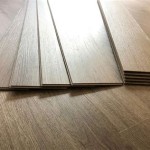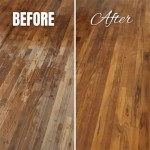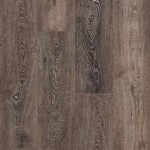The Benefits of Slate Stone Flooring: Pros and Cons
Slate flooring, a natural stone option known for its durability and timeless elegance, has become a popular choice for both residential and commercial spaces. Its unique, earthy beauty and inherent resilience offer a wide range of benefits, although some drawbacks must be considered before making a final decision. This article will delve into the pros and cons of slate flooring to provide a comprehensive understanding of its characteristics and suitability for various applications.
Pros of Slate Stone Flooring
Slate flooring boasts numerous advantages that make it a desirable choice for many homeowners and designers. Its distinctive features and inherent qualities contribute to its enduring popularity:
1. Durability and Longevity
Slate is a highly durable natural stone known for its resistance to scratches, dents, and wear. Its hardness and density make it an excellent choice for high-traffic areas, ensuring long-lasting beauty and functionality. With proper maintenance and care, slate flooring can last for generations, making it a wise investment in the long run.
2. Natural Beauty and Uniqueness
Each slate tile possesses a unique pattern and color variation, adding a touch of natural beauty and character to any space. The subtle variations in texture and shade create a visually appealing and organic aesthetic that complements various design styles, from traditional to contemporary.
3. Versatility in Design and Application
Slate flooring is available in a wide range of colors, sizes, and finishes, offering versatile design options to suit diverse preferences. Its versatility extends beyond aesthetics, with applications ranging from kitchen and bathroom floors to exterior patios and walkways.
4. Easy Maintenance
While slate flooring requires regular cleaning and sealing, its natural properties make it relatively easy to maintain. Its non-porous surface resists stains and dirt, making it suitable for families with pets or children. With proper sealing, slate flooring can withstand spills and everyday wear and tear, minimizing cleaning efforts over time.
5. Environmental Sustainability
As a natural product, slate flooring is an eco-friendly choice. Its extraction and production processes have a minimal environmental impact compared to manufactured flooring materials. Additionally, slate is a non-renewable resource, but its durability ensures a long lifespan, reducing the need for frequent replacements.
Cons of Slate Stone Flooring
While slate flooring offers numerous advantages, certain drawbacks should be considered before making a decision. These aspects may influence the suitability of slate for specific applications and individual preferences.
1. Coldness and Slippage
Slate is known for its cool, hard surface, which can feel cold to the touch, especially in colder climates. It also can be slippery, particularly when wet, requiring careful consideration for areas with high moisture levels, such as bathrooms or kitchens.
2. High Installation Costs
Installing slate flooring typically involves higher costs compared to other flooring options. The labor-intensive process of cutting, setting, and sealing slate tiles contributes to its overall expense. However, considering its longevity, slate flooring can be viewed as a long-term investment.
3. Potential for Cracking
While durable, slate flooring can crack under extreme pressure or impact. This risk is heightened when installers use improper techniques during installation or if the subfloor is uneven or unstable. Careful planning and proper installation are essential to minimize the possibility of cracking.
4. Limited Color Options
While slate offers a range of colors, it may not provide as wide a selection as other flooring materials. Its natural origins limit the available color palette, which may not suit all design preferences or color schemes.
5. Maintenance Requirements
While slate flooring is relatively easy to maintain, it does require regular cleaning and sealing to preserve its beauty and durability. Periodic sealing is necessary to protect the surface from stains and water damage, ensuring its longevity and continued aesthetic appeal.
Slate flooring offers a unique blend of durability, natural beauty, and versatility, making it a desirable choice for many homeowners. However, its potential for coldness, slippage, and high installation costs must be carefully considered. Before making a final decision, thorough research and consultation with professionals are recommended to ensure that slate flooring aligns with individual needs and preferences.

Slate Flooring Review Pros And Cons Complete Guide 2024

Stone Flooring Pros Cons Tile Urban Customs

Slate Flooring Pros Cons Types Installation Method

Why Slate Flooring Is A Good Choice Granite Gold

Slate Flooring Pros Cons 2025 Specifier

Pros And Cons Of Natural Stone Flooring In Layman Terms Wood Beyond Blog

What To Know About Slate Flooring Stones Okc Richburg Stone

Slate Tile Flooring Pros And Cons Stone Pe Inc

The Pros And Cons Of Slate Tile

Pro Cons Of Natural Slate Flooring Claude Browns
See Also







